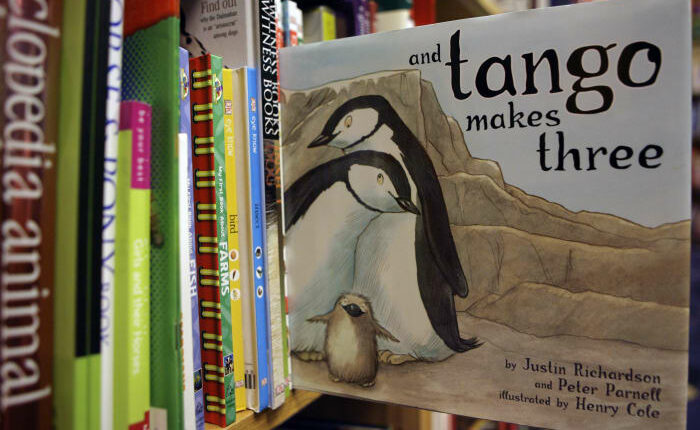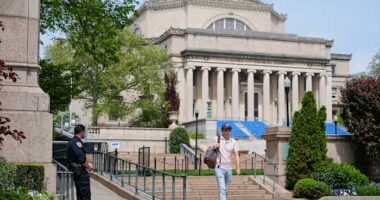Share this @internewscast.com

TALLAHASSEE, Fla. – On Friday, lawyers representing the authors of a book and a student swiftly appealed a federal judge’s decision that dismissed a First Amendment challenge regarding a 2023 ruling by the Escambia County School Board to remove the book “And Tango Makes Three” from school libraries.
Just three days after the decision by Chief U.S. District Judge Allen Winsor, the attorneys filed an appeal for authors Peter Parnell and Justin Richardson, along with the student, referred to as B.G. in the case documents.
As is typically the case, the appeal notice does not specify the arguments the plaintiffs plan to present to the 11th U.S. Circuit Court of Appeals. However, it marks the continuation of legal battles over book removals in Escambia County and other Florida regions.
[WATCH: Is banning books a solution or a problem? (from 2023)]
“And Tango Makes Three,” a story about two male penguins raising a chick at Central Park Zoo, has become central in ongoing discussions. The plaintiffs claim it was singled out due to its portrayal of same-sex parents raising a child.
In a brief submitted in February, the plaintiffs’ attorneys contended that the Escambia board infringed upon First Amendment rights by pulling the book from libraries due to “unlawful viewpoint discrimination.” They argued for its reinstatement across five school libraries where it had been available.
The brief emphasized that, besides accurately portraying penguin behavior, “Tango” highlights family values, adoption, and parental responsibility. The trial evidence, it stated, would show that authors Peter Parnell and Justin Richardson aimed to express that same-sex relationships and families are valid, capable of happiness and health, and that same-sex couples can successfully adopt and nurture children.
[WATCH: A battle over books: Central Florida parents clash over books in schools]
But in his 18-page ruling Tuesday, Winsor wrote that “there is no view of the facts that could support plaintiffs’ claim that the board engaged in unconstitutional viewpoint discrimination or otherwise violated the First Amendment with respect to Tango.”
Winsor, who is based in Tallahassee, wrote that the “government does not create a forum for others’ speech by purchasing books for a public library.”
“The author plaintiffs have no First Amendment right to speak through the library, and B.G. has no First Amendment right to receive the author plaintiffs’ message through the library,” the ruling said. “Nor do the author plaintiffs have a First Amendment right to demand the library ignore the book’s viewpoint when determining whether to include it in its collection.”
Winsor added that the ruling “does not, of course, keep the book (or any viewpoint in it) from B.G. or any other student. … The Escambia County School Board has simply decided students wanting this particular book will have to get it elsewhere.”
Escambia County has been a battleground as school districts in various parts of Florida have removed or restricted access to books. Parents, authors, the publishing company Penguin Random House and the free-speech group PEN American Center, Inc. also have filed a broader lawsuit contending that Escambia County book decisions violated the First Amendment. That case remains pending.











